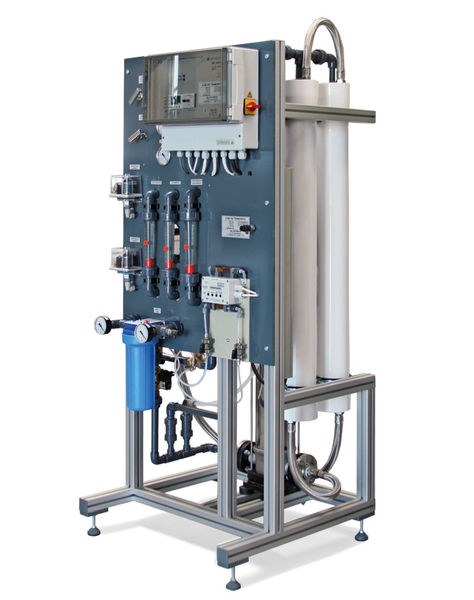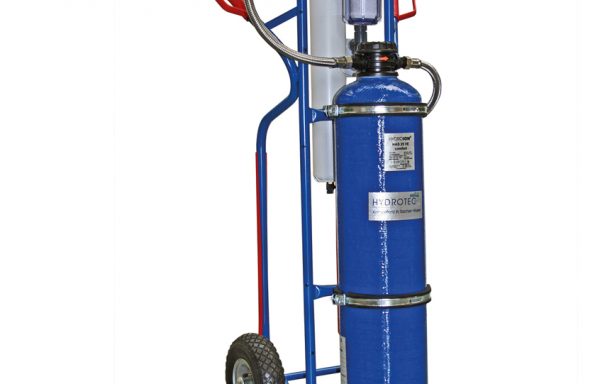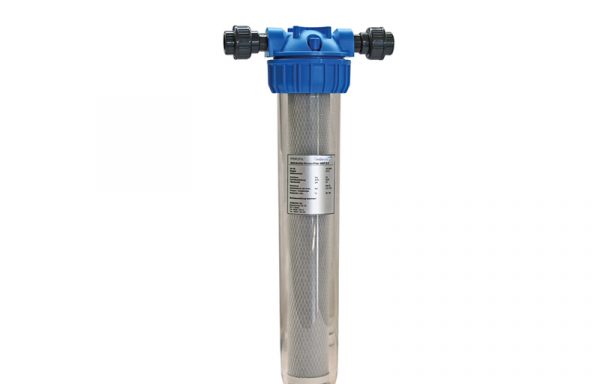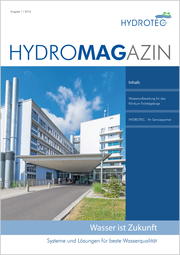Water Treatment by Deionisation
Modern sensible production processes require extreme highly purified water that is not only free from particulates, but has all dissolved matter removed from it. Water treatment systems such as for example Reverse Osmosis and Mixed Bed Ion Exchange ensure a final water quality required for and in accordance with the respective demand and application.
Applications:
- Drinking and process water treatment of borehole or well water
- Food and beverage industry
- Electrical and semiconductor fabrication
- Electroplating industry
- Steam generator, heating circuits
- Special applications cooling – cooling circuit
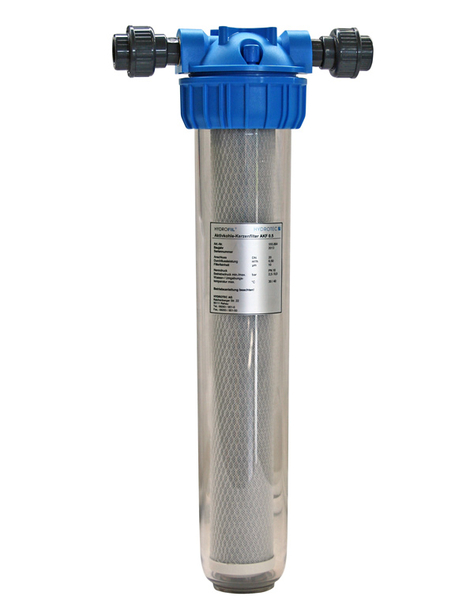 Treatment prior Deionisation – Filtration
Treatment prior Deionisation – Filtration
Active carbon cartridge filters suited to remove chlorine from drinking, process and borehole water and mainly used in the treatment prior Reverse Osmosis systems. The drinking water to be filtered must be free from mechanical pollution to a large degree. Chloride is produced by the surface reaction of the active carbon with the free active chlorine and chloride is dragged along and discharged with the water.
Reverse Osmosis Systems. Osmosis is a natural process, occurring frequently in nature and is the process or force that drives water to move from a lower salt concentration solution to a higher salt concentration solution, when they are separated by a semi-permeable membrane. In other words water molecules will move through a membrane (like the skin of an animal or plant for example) to try to equalise the salt concentrations on either side of it. In reverse osmosis we reverse this process, by applying pressure to one side of the semi-permeable membrane we can cause water to flow from the higher concentration solution to the lower one. By careful selection of the membrane it is possible to produce extremely pure water by this technology.
Typically high purified water is required for laboratory use, many humidification systems and steam boiler feed systems.
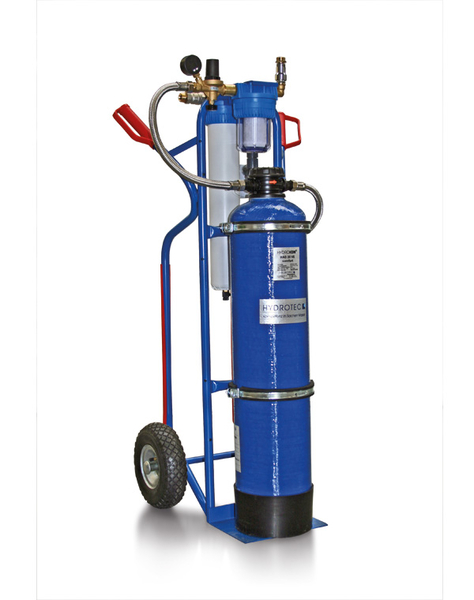 Deionisation Products – Closed Heating Circuit
Deionisation Products – Closed Heating Circuit
Thanks to Deionisation of Heating Water blocking or damage by deposits is avoided. Any corrosion risk in the system is kept at a minimum by the significantly reduced conductivity. Deposits on heat exchangers and pipe walls result in an increased energy consumption. Filling of a closed heating circuit with deionised water favours the energy efficiency.
- Any type of deposits is avoided
- Scale is removed
- Protection against corrosion since all minerals in the water are removed
- Energy loss and system damage is avoided
- The efficiency of the heating system is increased
- Regulations in accordance with VDI 2035 1 and 2 are kept (legal aspect)



